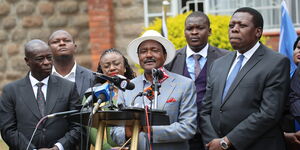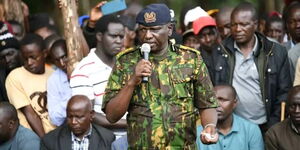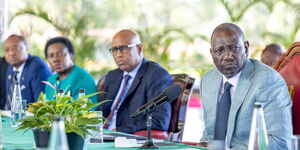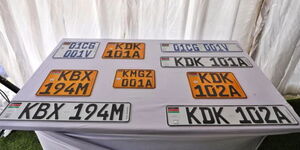The Kenya Association of Manufacturers (KAM) has raised concerns over the increased illicit trade in the country and offered several solutions to the government.
In the latest Manufacturing Priority Agenda (MPA) 2024, KAM argued that the proliferation of counterfeit goods damages the economy and poses risks to Kenyans, including health and safety.
KAM further argued that this trade bars the government from collecting revenue to run the affairs. Most of these counterfeit products such as sugar, milk and alcohol powder only benefit the manufacturer who does not pay the required taxes and levies.
"Illicit trade poses unfair competition in the market and ends up shrinking the market share of genuine investors, thus damaging their brand reputation among other negative impacts to the local industries," read part of the report.
To address this, KAM has suggested the implementation of six measures which will eradicate this menace and boost legitimate businesses in the country.
One of the measures is to review the excise duty charged to manufacturers. According to KAM, this is in line with addressing factors which incentivise the illicit trade.
"The government has been reviewing the tax regime on excisable goods upwards to increase its revenue. One of the impacts has been incentivising illicit trade which inevitably reduces government revenue through tax evasion. A case in point is the continued shrinking of the alcoholic beverages and cigarette industry in Kenya due to illicit trade," read part of the report.
Excise duty is imposed on goods and services manufactured in Kenya or imported into Kenya. Each manufacturer should have an excise license from the Kenya Revenue Authority (KRA) and they will also need excise stamps.
Aside from this, the government was also advised to intensify awareness on matters of illicit trade to targeted groups including users, producers and governments.
This may include campaigns or public participation forums to engage with Kenyans and educate them on the consequences of engaging in illicit trade.
"Enhance Intellectual Property Rights (IPR) compliance through coordinated enforcement with line agencies that support the government in expanding its tax revenue base, promote health and safety of consumers, food security and innovation and value addition," KAM advised.
Additionally, the government was urged to adopt high-level reporting of the interagency findings in relation to illicit trade and adoption of the Standard Operating Procedures (SOPs) for the multiagency team.
KAM had proposed the SOPs in 2020 for the inspection, verifaction and clearance of imports at the ports or other points of entry in Kenya which can be considered for review and adoption by the government.
Another move by the government should be the implementation of the IPR Recordation Regulations that came into effect on January 1, 2023. Under these regulations, importation of unrecorded or unregistered goods shall be allowed as long as they are not counterfeit.
Conclusively, KAM suggested that the government should enhance inter-agency collaboration, coordination, accountability and transparency in the enforcement against illicit trade.
Under this, the manufacturers explained that KRA, the Anti-Counterfeit Authority (ACA) and the Kenya Bureau of Standards (KEBS) should work in unison if a product is counterfeit and has evaded payment of any taxes. Other governments should also be incorporated in this fight against illicit trade.
"The government can consider establishing a high office, especially from the Executive arm of the government to coordinate all the enforcement agencies under the multi-agency setup for the much-needed effectiveness in sustaining the fight against the various forms of illicit trade in Kenya," read part of the report.












